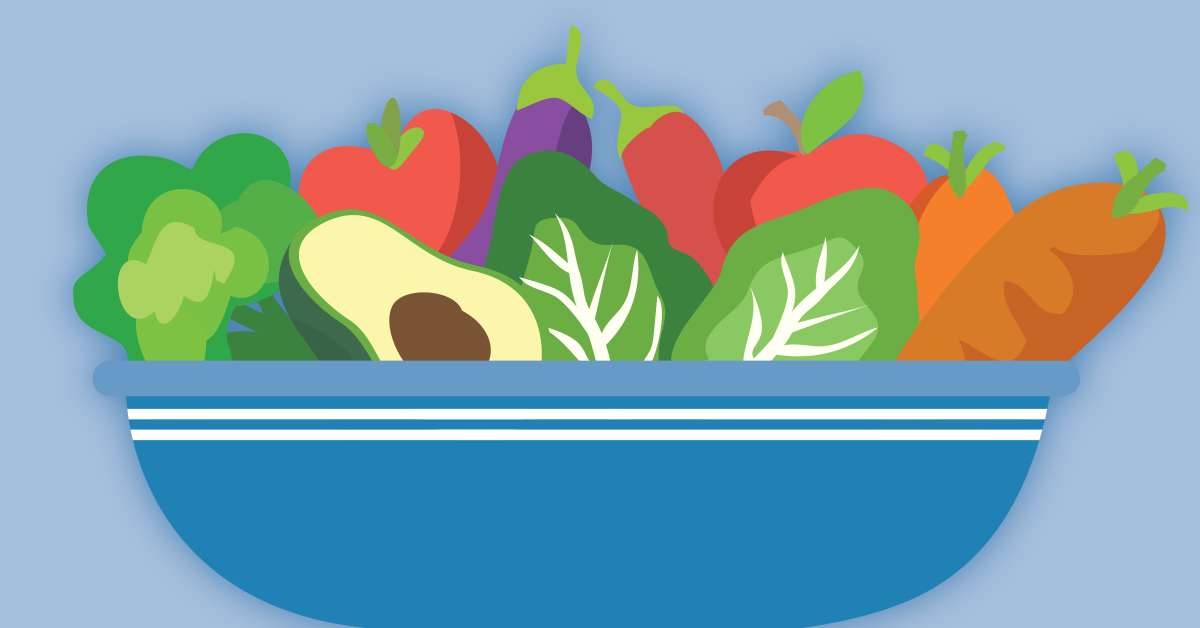How nutrition impacts mental health
Eating a balanced diet filled with fruits, vegetables, whole grains, and lean protein loads us up with all the nutrients, vitamins, and minerals our bodies need to work at their best.
As for our mental health, you might think that a sugary or high-fat treat is just what the doctor ordered to ease our stress or boost our mood. Not so. A relatively new field of research called nutritional psychiatry examines how the foods that keep our bodies healthy also promote our mental well-being.
Fueling our brains
Our brains work around the clock, 24/7, 365 days a year, to control thought, memory, emotion, touch, motor skills, vision, breathing, temperature, hunger, and every process that regulates our body. With all of this activity, our brains need a lot of energy and are “fueled” by the food we eat.
When fueling your brain, you’ll want to choose premium over low-grade options. What we eat directly affects the function of the brain and, ultimately, mood. High-quality foods containing fatty acids, antioxidants, vitamins, and minerals nourish the brain and protect it from oxidative stress—the waste produced when the body uses oxygen, damaging brain cells.
The gut-brain connection
The foods we eat also determine our “gut health” and can support good bacteria that live in our digestive systems. These good bacteria are responsible for producing hundreds of neurotransmitters, one in particular – serotonin. Often thought of as a brain chemical, about 95% of serotonin is made in the gastrointestinal system. In addition to regulating sleep and appetite and inhibiting pain, it plays a vital role in regulating mood – that may be why some refer to it as the happy chemical. The complexity of the gut, also known as the microbiome, and its importance to our overall health is a hot topic in the medical community.
To improve your gut health, incorporate more of these foods into your diet.
- Fermented foods – yogurt, sauerkraut, kimchi, kombucha, kefir, miso and tempeh
- Prebiotic foods – artichokes, leeks, onions, raspberries, beans, asparagus, garlic bananas, pears, watermelon
Junk food for the brain
Just as some foods can be beneficial, some can have adverse effects on the brain. A diet that consistently includes sugary drinks, refined carbs, foods high in trans fats, highly processed foods, artificial sweeteners, and excess alcohol promotes chronic inflammation. The Western or Standard American Diet (SAD), one low in fruits and vegetables but high in sugar, fat, and processed foods, has long been associated with poor health. Several studies have shown a link between this diet, worsening mood disorders, and increased likelihood of depression over time.
Brain food
A couple of diets can be categorized as premium fuel for the brain to promote brain health and mental health.
The Mediterranean diet is rich in fruits and vegetables, whole grains, legumes, nuts, fish, white meats, and olive oil and is considered one of the healthiest diets in the world.
The traditional Japanese diet is a whole-foods-based diet rich in fish, seafood, and plant-based foods with minimal animal protein, added sugars, and fat.
Compared to SAD, these healthier diets are associated with a 25-30% lower risk for depression. Their anti-inflammatory effects may help with anxiety, panic disorders, generalized anxiety disorder, and even PTSD.
Starter foods for better brain health
Here are a few specific recommendations from Harvard Medical School to get you started toward better brain health.
- Green veggies
- Fatty fish
- Berries
- Tea and coffee
- Walnuts
So put down that cookie if you’re looking for a boost to your mood. Incorporate healthy foods into your diet every day for a healthier body and mind.














